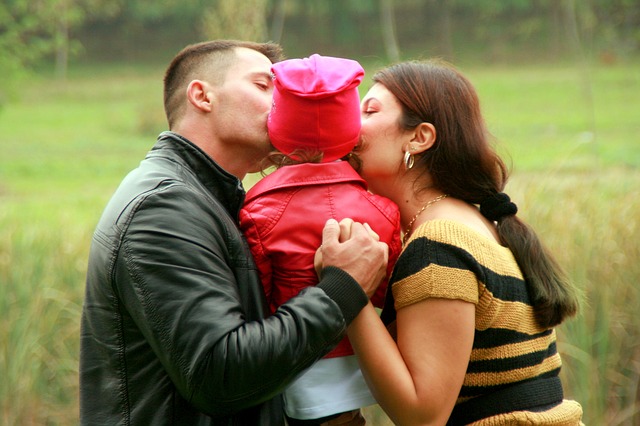Like any mother, I want to protect my children to the fullest extent possible while still encouraging them to be independent. I could choose to keep them home forever, never let them have sleepovers and assume everyone has the capability of being a bad person.
Quite honestly? I wish I could do those things forever – but the reality is I can’t. Sure, I can do it for 18 years or until they move out…maybe. But, what happens when they spread their wings and leave home, the one place where their safety has always been ensured, and they simply aren’t prepared for what this sometimes scary world has to offer them?
Prior to becoming a mother I received my degree in Social Work, with a special interest in child sexual abuse and following that I worked as a Child Welfare Specialist for OKDHS. Therefore, my passion has been and continues to be protecting children. But – when it comes to protecting your own children it’s difficult to find balance between fully protecting them – yet still encouraging independence.
In our family, we’ve put several tools in place for our children and I wholeheartedly believe that these tools will not only protect them, but also allow them to speak up and break the silence if they ever become a victim of sexual abuse. Whether that be when they’re children, teenagers or adults.
Let me start by saying you need to STOP focusing solely on strangers and internet creepers.
90% of offenders are family friends or family, the people whom you trust and the people whom have gained the trust of your children. It’s scary, it’s unfathomable but it’s real. It’s so real that we have created a circle of safety in our home in which a set of rules have been set in place to best prevent the situations and know how to deal with them appropriately should they happen.
1. We teach them that their body is theirs.
At a young age we keep it simple, if they don’t want someone touching them they ask them to stop. We also explain that mommy, daddy, and other caregivers such as grandparents are the only ones allowed to assist them going potty, bathing and getting dressed. As they get older we will discuss more specifically that even when those people are helping, there are boundaries. We also add that healthcare professionals can also look at and touch their genitalia when necessary and only when approved by mommy or daddy.
2. We encourage boundaries and privacy.
We explain that they should not undress in front of other people, other people should not be in the bathroom with them while they are going potty or taking a bath except for their caregiver.
3. We discuss appropriate and inappropriate touches.
We’re getting good at this conversation as we have boy/girl twins. Once they knew their body parts we started by having them identify all of them and explaining that the penis, vagina, anus and breasts are inappropriate places for someone else to touch. We even add that lips can be an inappropriate place if the kiss is unwanted. In addition, we explain that kisses are okay and good if they want to give them. Let me add, they hug and kiss a lot so this hasn’t made them any less affectionate to those they love.
4. Explain that sometimes inappropriate touches may feel good but that does not make them appropriate.
Let’s be honest, unless you’re aware that someone is abusing you, sexual touches feel good. To a child it can be difficult to interpret the difference between good and bad in a situation where they have been groomed by someone they know.
5. Body secrets are never allowed.
As adults we all know that secrets don’t make friends, so we plan to discourage secret telling in any form, but especially when it comes to their body. We will let them know that if someone tells them to keep a secret, more specifically a body secret, that they must tell a trusted adult immediately and they will never be in trouble for sharing a secret about their body or safety, even if they’ve been told otherwise.
6. We use anatomically correct terms to identify private parts.
This is one some people struggle with, not because they are “bad” or “immature” parents but because they aren’t used to discussing private parts so openly. From the beginning, penis and vagina have been frequently used terms in our household. With my background this came pretty naturally but when my son or daughter talk about their penis or vagina, I get some looks and laughs but hey, why not? I mean an arm is an arm, right? In the event that your child is exposed to sexual abuse it is important for them to be able to identify where they were abused, etc. in order for the investigation to stand up in court.
7. Discuss inappropriate picture taking.
We haven’t gotten to this point yet but we live in a technological world where pictures are taken so often that children may not think much about someone photographing their genitalia unless they’ve been warned.
8. Have a code word.
As our kids get older and begin staying with other people, having sleepovers, going to school, etc. we will implement a code word. This will allow them to call or text me at any time and if the word is used, I’ll know that they are uncomfortable with something and I will be there ASAP to make them feel safe and investigate what was going on.
9. Explain that the rules apply to other children as well.
It’s easy to assume that all perpetrators are adults or teenagers but children can also be perpetrators and the rules above apply to them as well. There is a fine line between “normal” childhood sexual exploration and child sexual abuse and if we discourage all sexual touches by anyone other than themselves we’re setting them up for success. That brings me to another important tip, don’t shame your children for touching their penis or vagina and being excited by it. Instead, explain that they aren’t allowed to do that in front of people and if they continue ask them to go to their room to do it in private.
10. Only let your children be around people you trust.
Even then, ask questions and never let your guard down. In the meantime, remember while this world can be scary, it’s also a really great place with a lot of great people. Don’t let fear hold you back from encouraging independence and exploration. Set your children up for success and you’ve done the best you can.
If you believe a child is being abused or neglected, you are required by law to report it to the Child Abuse & Neglect Hotline at 1-800-522-3511.


















